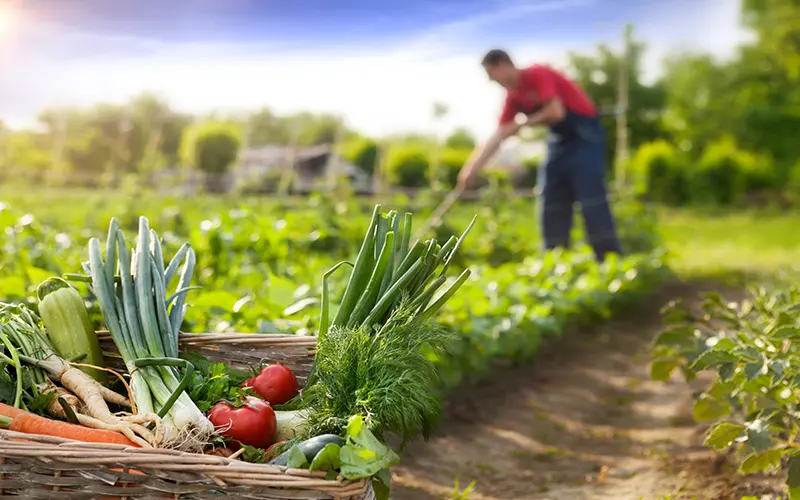Gardening enthusiasts know that the secret to a thriving vegetable garden lies in the soil. To ensure healthy and productive plants, organic fertilizers are an excellent choice.
They enrich the soil naturally, promote microbial activity, and are eco-friendly. Here are some of the best organic fertilizers for vegetable gardens, along with tips on how to use them effectively.
Best Organic Fertilizers
1. Compost
Compost is often referred to as “black gold” for gardeners. Made from decomposed organic materials like kitchen scraps, leaves, and grass clippings, compost improves soil structure, enhances water retention, and supplies essential nutrients.
Apply a layer of compost to your garden beds before planting or use it as a top dressing during the growing season.
2. Manure
Animal manure, such as cow, chicken, or horse manure, is rich in nitrogen and other nutrients essential for plant growth. Its crucial to use well-aged or composted manure to avoid burning plants with excessive nitrogen.
Spread manure evenly over the soil and incorporate it into the top few inches for best results.
3. Bone Meal
Bone meal is a powdered form of animal bones and is an excellent source of phosphorus and calcium. It encourages strong root development and flowering, making it ideal for root vegetables like carrots and beets.
Mix bone meal into the soil at the time of planting to give your vegetables a good start.
4. Fish Emulsion
Fish emulsion is a liquid fertilizer made from fish by-products. Its rich in nitrogen and provides a quick nutrient boost for plants.
Dilute fish emulsion with water as directed on the package and apply it as a foliar spray or soil drench every 2-4 weeks.
5. Seaweed Extract
Seaweed extract is a natural fertilizer derived from ocean plants. It contains trace minerals, potassium, and natural growth hormones that promote overall plant health.
Use seaweed extract as a liquid feed, either spraying it on the leaves or watering it into the soil.
6. Wood Ash
Wood ash from untreated wood is an excellent source of potassium and calcium carbonate. Its particularly beneficial for neutralizing acidic soils.
However, use wood ash sparingly and avoid applying it near acid-loving plants like tomatoes or potatoes.
7. Green Manure
Green manure involves growing cover crops, such as clover or alfalfa, and then tilling them into the soil.
These plants add organic matter and nutrients back into the soil, improving its fertility over time. Green manure is especially useful during the off-season to prepare the garden for future planting.
Tips for Using Organic Fertilizers:
- Test Your Soil: Conduct a soil test to determine nutrient deficiencies and pH levels. This will help you choose the right fertilizer.
- Follow Application Rates: Organic fertilizers can still harm plants if over-applied. Always follow recommended usage instructions.
- Combine Fertilizers: For a balanced nutrient supply, consider combining different types of organic fertilizers based on your gardens needs.
- Timing Matters: Apply fertilizers at the right timetypically before planting or during active growth periods.
By incorporating these organic fertilizers into your vegetable gardening routine, you can grow healthier, tastier, and more abundant crops while nurturing the environment. Happy gardening!
For further reading, check out: How to choose the right fertilizer for your soil
Conclusion: Choosing the Right Fertilizer
Selecting the right organic fertilizer depends on your garden’s specific needs and the crops you’re growing. Each fertilizer listed above offers unique benefits, making it important to consider the nutrient requirements of your vegetables.
For gardeners looking for a versatile and reliable option, CK Fertilizer stands out as a top choice.
CK Fertilizer combines the benefits of natural ingredients with advanced organic technology to deliver optimal results.
Whether youÔÇÖre growing leafy greens, root vegetables, or fruiting crops, CK Fertilizer provides balanced nutrition and enhances soil health. By choosing CK Fertilizer, youÔÇÖre investing in sustainable gardening practices and ensuring a bountiful harvest season after season.
FAQs
1. Can I use fresh manure in my vegetable garden?
Fresh manure is not recommended as it can burn plants due to high nitrogen content and may contain harmful pathogens. Always use well-aged or composted manure for best results.
2. How often should I apply organic fertilizers?
The frequency of application depends on the type of fertilizer and your soilÔÇÖs needs. For example, compost can be applied once or twice a year, while liquid fertilizers like fish emulsion may be used every 2-4 weeks during the growing season.
3. Are organic fertilizers safe for all types of vegetables?
Yes, organic fertilizers are generally safe for all vegetables. However, certain fertilizers like wood ash should be used cautiously with acid-loving plants. Always consider your vegetable type and soil pH before applying.
Fresh manure is not recommended as it can burn plants due to high nitrogen content and may contain harmful pathogens. Always use well-aged or composted manure for best results.
The frequency of application depends on the type of fertilizer and your soilÔÇÖs needs. For example, compost can be applied once or twice a year, while liquid fertilizers like fish emulsion may be used every 2-4 weeks during the growing season.
Yes, organic fertilizers are generally safe for all vegetables. However, certain fertilizers like wood ash should be used cautiously with acid-loving plants. Always consider your vegetable type and soil pH before applying.
